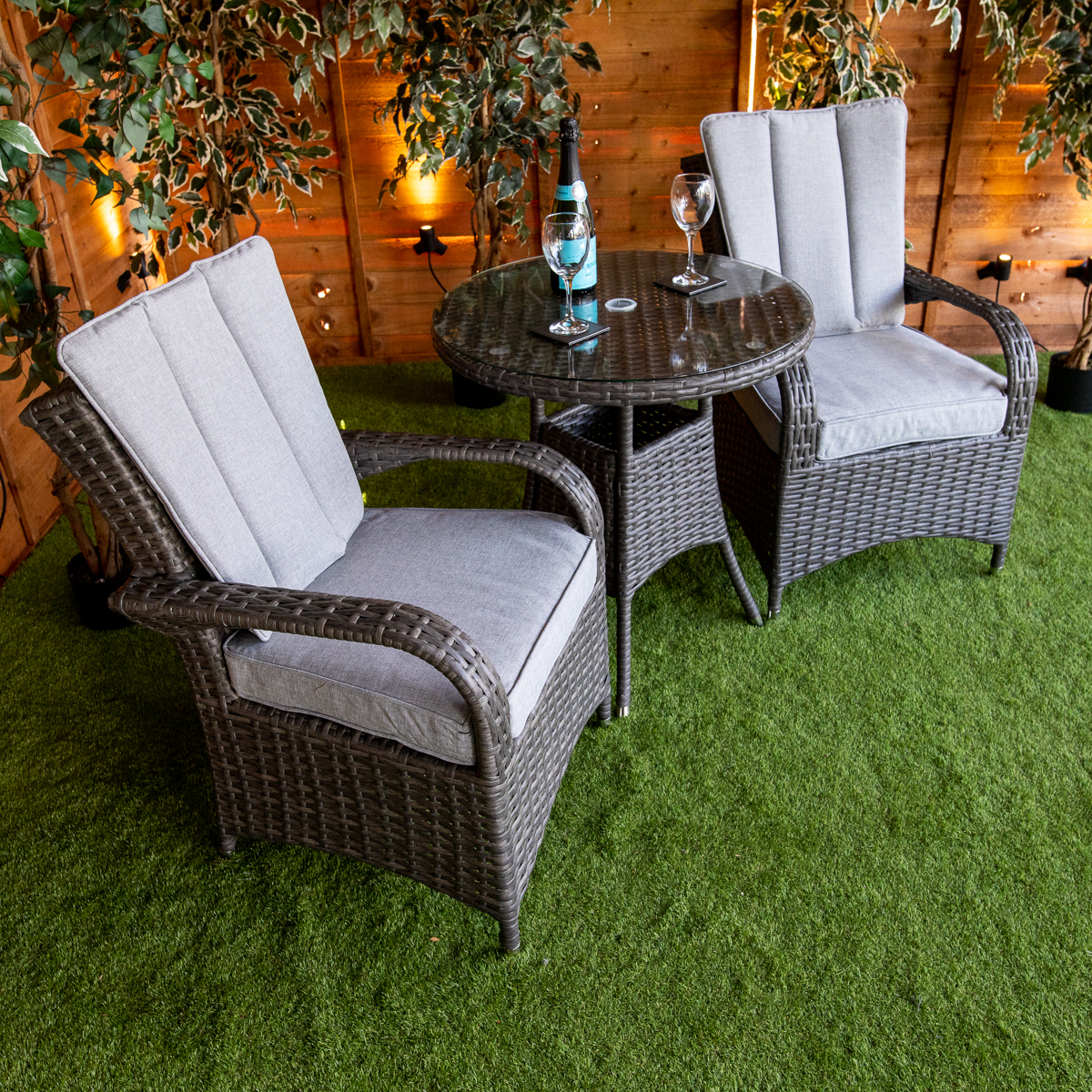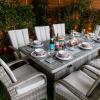Rattan Revolution: Why Indoor Rattan Furniture is Skyrocketing in Popularity?

The utilization of indoor rattan furniture has experienced an astronomical surge in recognition over recent years and it's not surprising in the slightest!
Crafted with precision by master craftsmen, this climbing vine derived from trees has skyrocketed in demand due to its sustainable and environmentally friendly characteristics. Retailers and manufacturers like Rattan Garden Furniture Ltd have become increasingly imaginative with the material, designing stunning masterpieces that would not have been achievable through wood.
In this post, we delve into the most frequent queries regarding indoor rattan furniture and unveil why it's a premier selection for the indoor.
Is rattan furniture fashionable?
The indoor rattan furniture trend aligns with most of the current popular styles. Consumers are increasingly drawn towards eco-friendly and handcrafted products that add a touch of nature to their interior design. Styles like Miami, Tokyo, Atlanta, Boston, and biophilic all embrace a natural and sustainable aesthetic, and rattan is the perfect material to embody these design ideals. The indoor cane accent chair is just one example of how versatile and stylish rattan furniture can be.
Is rattan environmentally friendly?
Rattan, a tropical vine abundant in Southeast Asian rainforests, is considered sustainable for various reasons. Firstly, the process of producing rattan furniture is simple, often performed by skilled artisans without the need for extensive manufacturing facilities. Additionally, the vine is highly renewable, growing at a rate of 2cm per day and ready for harvest within 2-3 years, which is much faster than traditional wood.
Rattan, like solid wood, is also recognized as an environmentally conscious choice due to its longevity. With proper care, a well-made rattan furniture piece can last for over 10 years, reducing the need for frequent replacements and minimizing waste.
Is rattan furniture sturdy despite its lightweight nature?
The robustness of rattan furniture is contingent upon the calibre of the producer. However, with a prudent brand selection, the longevity of your rattan furnishings can span multiple years.
Famously known as cane, the fortitude of this furniture is inherent in its woven formation. By intertwining individual strands of natural rattan, the weight is dispersed uniformly throughout the surface, conferring enhanced stability and comfort.
Varieties of indoor rattan furnishings
The spectrum of indoor cane furniture showcases a plethora of designs and configurations, presenting rattan alternatives for each furniture piece. Here is a selection of cane furnishings that may prove to be a viable substitute for solid wood furnishings.
Rattan coffee tables
Rattan coffee tables can offer a compelling alternative to solid wood furnishings due to their lightweight and maneuverable nature, making them suitable for frequent relocation.
It's crucial to bear in mind that several rattan coffee tables are equipped with glass tops to fend off any moisture damage to the material.
Rattan bar stools
Rattan bar stools share the same functional attribute with coffee tables, which is their lightweight construction. Bar stools should be portable and effortless to lift, and natural rattan material provides the ideal solution for this purpose.
For added comfort during prolonged seating, consider kitchen stools with rattan seats and backrests. The elastic nature of this material makes it perfect for extended seating sessions.
Is rattan furniture waterproof?
The inherent characteristics of natural rattan, being a plant-based material, make it susceptible to the whims of the weather. If left unshielded from the elements for extended durations, rattan can undergo discoloration, deteriorate, and even spawn mold due to its absorptive nature.
Despite its enduring popularity for outdoor applications, it is highly advisable to restrict its use to the sunny months and secure it in a moisture-free environment during the colder seasons to avoid succumbing to the dangers of dampness.
How to clean Rattan furniture?
Maintaining the longevity and appearance of your indoor rattan furniture is crucial. As previously mentioned, neglect can lead to unwanted mold and discoloration.
To rid your furniture of dust, connect your vacuum's brush attachment and gently run it through the weaves. The bristles will help dislodge any particles lodged in the crevices while the suction will efficiently suck them away.
When it comes to cleaning, opt for a gentle soap solution made of mild dishwashing detergent and lukewarm water. Ensure to wring out the cloth, avoiding excessive moisture, then thoroughly dry the piece after wiping. Finally, for a complete drying process, leave your furniture in a warm place or outside.
What’s the difference between rattan and wicker?
The difference between rattan and wicker is frequently misunderstood as synonymous terms, but in actuality, they are fundamentally different. Rattan refers to the natural vine that's harvested from tropical regions in Asia, Africa, and Australia, and then woven into furniture through the art of weaving. Wicker, however, refers to a particular weaving style employed in crafting furniture, baskets, and other decorative items - not only from rattan, but from other materials such as willow, bamboo, or synthetic fibres. So, to summarize, rattan is the raw material, and wicker is the intricate technique of interweaving it into eye-catching pieces of furniture.
Why is Rattan Furniture So Costly?
Rattan and PVC outdoor wicker furniture is considered a luxury, and for good reason. The cost of these pieces is not just for the quality material, but for the meticulous and intricate process that goes into crafting each piece.
Firstly, the production of these furniture pieces involves a hand-weaving process that takes time, expertise, and effort. The intricate work of hand-weaving is what sets it apart, but it also leads to manufacturers passing on their labour costs to consumers.
Secondly, shipping rattan furniture contributes to its elevated price point. Unlike wooden furniture that can be disassembled into smaller pieces, rattan furniture is usually fully assembled and packaged into larger boxes. This causes a strain on shipping containers and increases shipping costs, especially given that rattan is predominantly grown and manufactured in Southeast Asia and its journey to Western countries is extensive.
Our final advise on indoor rattan furniture
Gone are the days where rattan was just a mere footnote in the annals of interior design. This eco-friendly, lightweight and durable material has now been transformed into breath taking works of art by innovative designers and manufacturers.
Incorporating a touch of rattan into your home can provide a visually airy effect. However, heed the caution, proper upkeep is crucial for the longevity and preservation of your indoor rattan furnishings. Remember, a weekly cleaning regimen will ensure that your pieces age with grace and maintain their pristine condition for years to come.



























